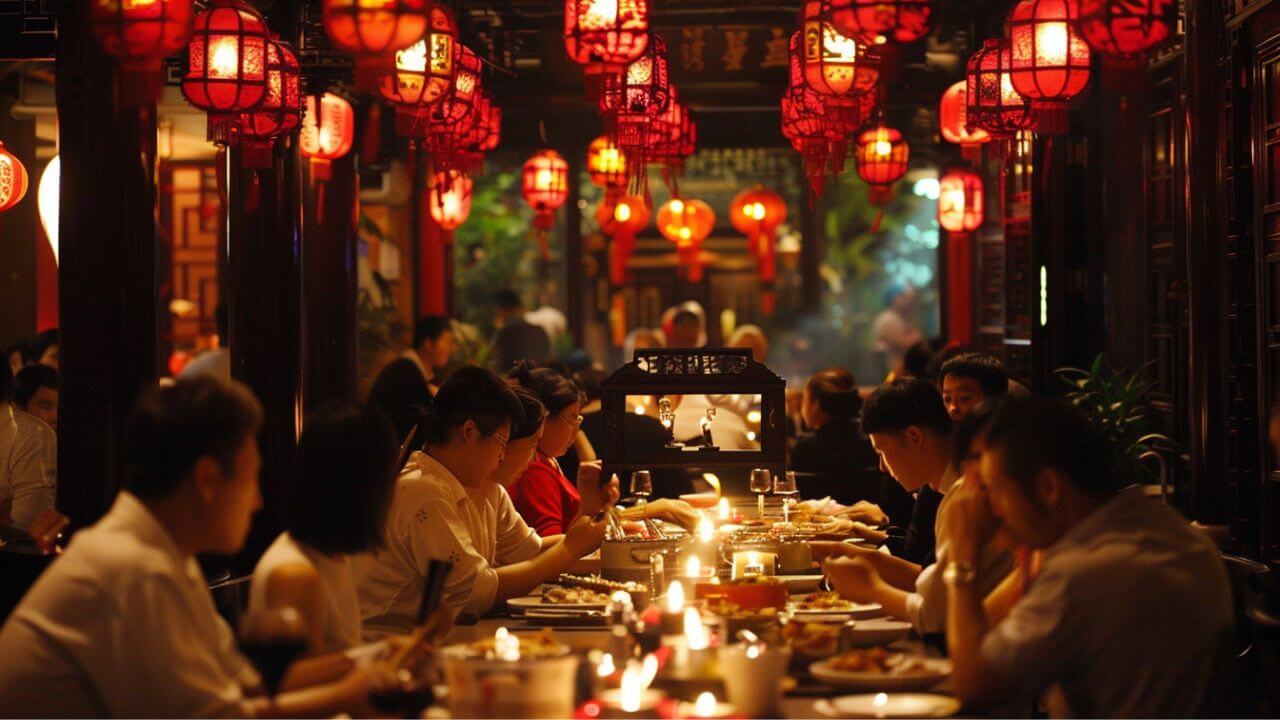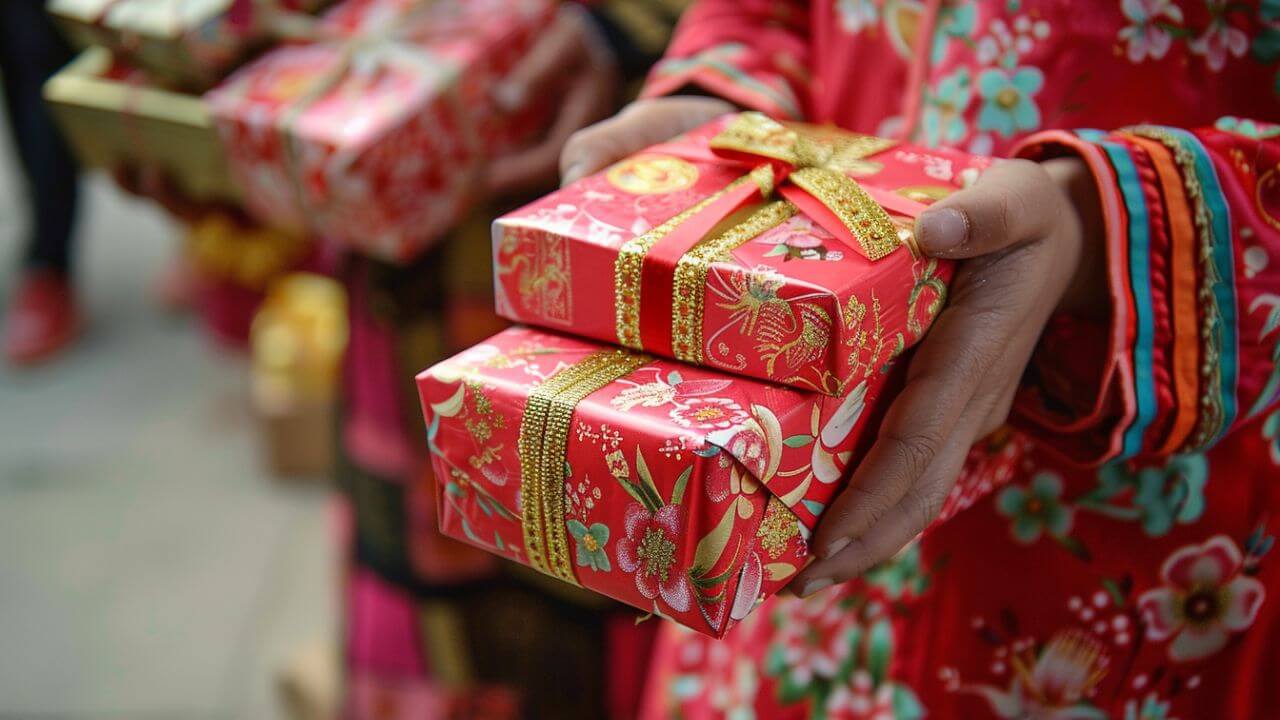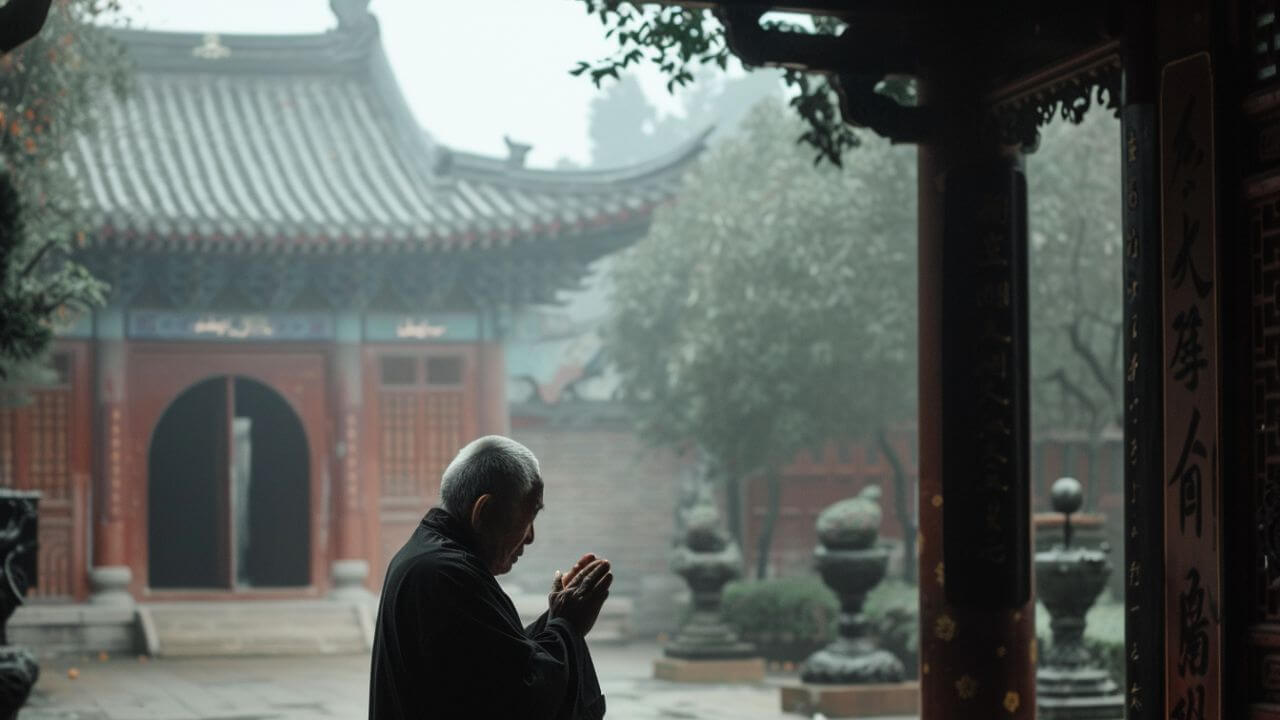China’s rich cultural heritage includes many customs and traditions that are important to understand as a visitor. Here’s a guide to some key customs and traditions that tourists should know to show respect and enjoy their time in China.

Greetings and Etiquette
- Greetings: A nod or slight bow is a common greeting. Handshakes are also common, but they may be lighter than in Western cultures.
- Respect for Elders: Always show respect to elders. Address them politely and offer your seat if they are standing.
Dining Etiquette:
- Chopsticks: Use chopsticks correctly and never stick them upright in a bowl of rice, as this resembles incense sticks used in funerals.
- Sharing Meals: Chinese meals are usually shared. It’s polite to serve others before yourself, especially the elderly or guests.
- Finishing Food: Leaving a small amount of food on your plate indicates you are satisfied, while finishing everything may imply you’re still hungry.

Gift Giving:
- Giving and Receiving: When giving or receiving gifts, use both hands as a sign of respect.
- Avoiding Certain Gifts: Avoid giving clocks, umbrellas, or sharp objects, as these items have negative connotations in Chinese culture.
- Red Envelopes: During special occasions like Chinese New Year, red envelopes (hongbao) containing money are commonly given. Always use new bills.
Festivals:
- Chinese New Year: The biggest festival, marked by family gatherings, feasts, and firecrackers. It’s a time for honoring ancestors and sharing red envelopes.
- Mid-Autumn Festival: Celebrated with mooncakes and lanterns, this festival focuses on family reunions and moon gazing.
- Dragon Boat Festival: Marked by dragon boat races and eating zongzi (sticky rice dumplings).

Temple Etiquette:
- Dress Modestly: Wear conservative clothing when visiting temples.
- Respectful Behavior: Be quiet and respectful. Avoid touching religious statues or taking photographs where it’s prohibited.
- Offerings: If you wish to make an offering, follow the local customs, which may include lighting incense or leaving small monetary donations.
Superstitions and Symbolism:
- Lucky and Unlucky Numbers: The number 8 is considered lucky, while the number 4 is often avoided as it sounds like the word for “death.”
- Colors: Red is associated with good fortune and joy, while white is linked to mourning and funerals.
Public Behavior:
- Personal Space: China can be crowded, and personal space may be limited. Be patient and courteous in busy areas.
- Queueing: Always queue and wait your turn in public places. Pushing ahead is considered rude.

Dress Code:
- Appropriate Attire: Dress modestly, especially in rural areas and religious sites. Avoid overly revealing clothing.
- Weather Considerations: Be prepared for varying weather conditions, depending on the region and season you are visiting.
Communication:
- Language Barrier: While English is becoming more common, especially in tourist areas, learning a few basic Mandarin phrases can be very helpful.
- Body Language: Avoid excessive hand gestures, which can be misinterpreted. A friendly smile and a nod are usually sufficient.
Respect for Nature and Environment:
- Littering: Dispose of trash properly. China has strict regulations about littering and maintaining cleanliness in public spaces.
- Protected Sites: Respect natural and historical sites. Do not deface or remove anything from these areas.
In China, customs and traditions play a significant role in daily life, shaping social interactions, cultural practices, and personal values. These deeply rooted aspects of Chinese culture have been passed down through generations, reflecting the rich historical and philosophical heritage of the country. Understanding and respecting these customs and traditions is essential for anyone wishing to engage meaningfully with Chinese society, whether as a visitor, business partner, or resident. They offer a unique lens through which to appreciate the depth and continuity of Chinese civilization, fostering a deeper connection to its people and way of life.

Helen Wang
Travel Advisor & Guide Expert
I started my travel career in 2005 and have since become an expert in Tibet and China’s travel destinations and helping travelers plan unforgettable trips.
For expert travel advice to China or Tibet, feel free to contact me.